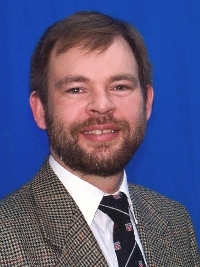Symposium JMicroscopy and spectroscopy techniques in advanced materials characterization |
|
Symposium JMicroscopy and spectroscopy techniques in advanced materials characterization |
|
Symposium Scope
Nowadays the need of advanced materials for high-end applications increases considerably, while the grain size of their constituents decreases down to the nanometric scale. Therefore, fundamental research and design of novel materials with tailored properties requires the use of sophisticated microscopy and spectroscopy characterization tools.
The aim of this symposium is to introduce a wide range of participants to the entire potential of materials characterization techniques available today. It is of crucial importance to present the broad range of capability and quantity of possible data that microscopic characterization methods offer to the scientists and engineers. A good example may be the transmission electron microscopy, which is often used for simple imaging of the material microstructure, while it can be applied for sophisticated analysis of various defects at the atomic scale, qualitative and quantitative elemental mapping and reconstruction of 3-D structures. Therefore, tools like electron or surface probe microscopy equipped with various satellite tools will be in the scope of this session. Particular interest will be focused on high-end spectroscopic tools allowing chemical characterization of the materials down to the atomic bonding. Contributions in advances and innovations in instrumentation are particularly solicitated.
All scientists and engineers interested in contributing to the development of knowledge in microscopic characterization tools are cordially invited to participate in this symposium.
The symposium will consist of four sessions, listed below, each of them devoted to a different characterization method:
1. Application of Analytical Electron Microscopy
This session is devoted to one of the most powerful characterization tools of the nanoworld: the transmission electron microscope (TEM). It combines structural and chemical characterization of materials ranging from micron to sub-nanometer scale. We solicit both oral and poster presentations in the recent development as well as in the application of advanced TEM methods, including electron diffraction (ED), high resolution electron microscopy (HRTEM), electron tomography, scanning transmission electron microscopy (STEM), energy dispersive X-ray analysis (EDX) and electron energy-loss spectroscopy (EELS).
2. Surface Probe Microscopy & Spectroscopy at Micro & Nanoscale
This session focuses on advanced characterization of materials on micro and nanoscale. It is intended to emphasize recent developments and novel methods but also established techniques for microstructural characterization by imaging and chemical spectroscopy. The characterization of surfaces is of particular interest for computer and semiconductor industry. An additional part of this session will be devoted to surface probing of magnetic materials. Highlighted methods are mainly surface probe microscopy techniques (AFM/STM) and spectroscopy (XPS, SIMS/TOFSIMS).
3. Non-Destructive Characterization Methods
This session is focused on non-destructive and/or in-situ material characterization techniques. Examples of methods include: optical and Raman spectroscopy, ellipsometry, acoustic and thermal wave methods, X-ray and synchrotron radiation based investigations, scanning electron microscopy (SEM), electron microprobe analysis (EMPA).
4. Nanotribology of Advanced Materials
This session addresses the very recent advances in the field of nanotribology. Mechanical investigations at the sub-nanometric scale such as friction, wear, adhesion and (nano)indentation tests as well as surface physics/chemistry investigations are of particular interest. Studies on self-lubricating thin films and hard, wear resistant coatings to prevent failure in unfavorable environment (ex. high temperature or humidity, corrosion media, vacuum etc.) are encouraged. New developments in instrumentation and measurement techniques are also in the scope of this session. Another part of this session will be focused on tribological properties of nanoparticles and surface modified nanoparticles in various environments. Moreover the tribological behavior of new type of oil additives and lubricating bases including ionic liquids (in particular the ecological ones) will be in the center of interest.
Prof. Jan DUTKIEWICZ (Poland); Prof. Philippe-André BUFFAT (Switzerland); Prof. Gustaaf VAN TENDELOO (Belgium); Prof. Bahrat BHUSHAN (USA); Dr. Andras KIS (USA); Dr. Leszek KLIMEK (Poland); Dr. Martin BALDEN (Germany); Prof. Pierre STADELMANN (Switzerland); Dr. Raphaël Foschia (Switzerland); Prof. Nikolai Myshkin (Belarus); Prof. Stanislaw Plaza (Poland); Prof. Aleksandra Czyrska-Filemonowicz (Poland); Prof. Hans-Peter Karnthaler (Austria).
Symposium Chairman:

Dr. Magdalena Parlinska-Wojtan, Empa Materials Science and Technology, Switzerland
Co-Chairmans:

Dr. Ireneusz Piwonski, University of Lodz, Poland

Dr. Nigel M. Jennett, National Physical Laboratory Teddington, UK
Important: Participants are encouraged to submit their articles until 31 October.
The guide for authors can be viewed through the link: http://www.elsevier.com/wps/find/journaldescription.cws_home/475/authorinstructions
The length of papers in the Proceedings is 6 printed pages for keynote papers and 4 printed pages for regular contributed papers.
Dr. Magdalena Parlinska-Wojtan
Laboratory for Nanscale Materials Science
Empa Materials Science and Technology
Ueberlandstrasse 129; CH-8600 Dübendorf, Switzerland
Phone +41-(0)44-823 4778
Fax +41-(0)44-823 4034
Email: [email protected]
Dr. Ireneusz Piwonski
University of Lodz
Department of Chemical Technology and Environmental Protection
Pomorska 163; 90-236 Lodz, Poland
Phone +48-(0)42-635 58 33
Fax. +48-(0)42-678 70 87 or +48-(0)42-635 58 32
Email: [email protected]
Dr. Nigel M. Jennett
National Physical Laboratory, Materials Performance
Hampton Road, Teddington, Middlesex, UK.
Phone: +44-(0)20-8943 6641
Fax: +44-(0)20-8614 0451
Email: [email protected]